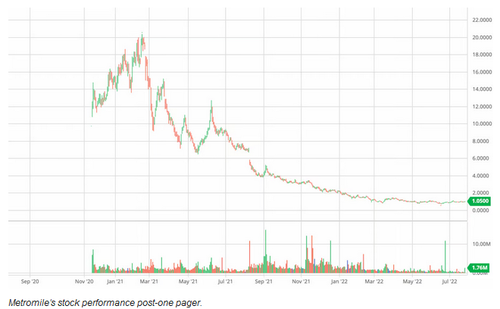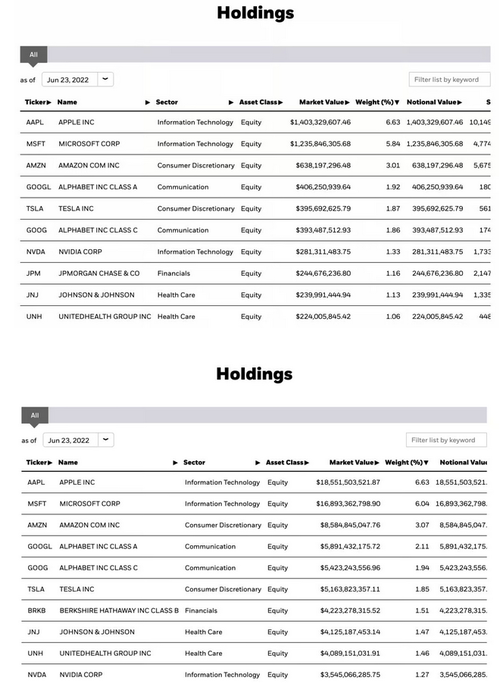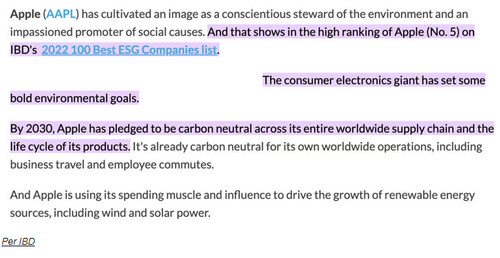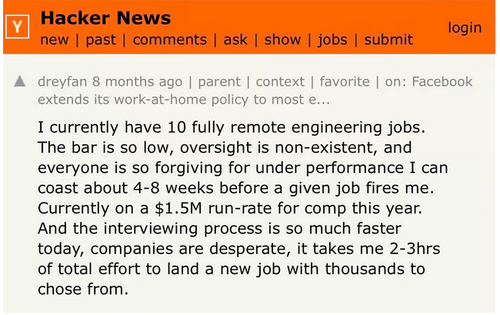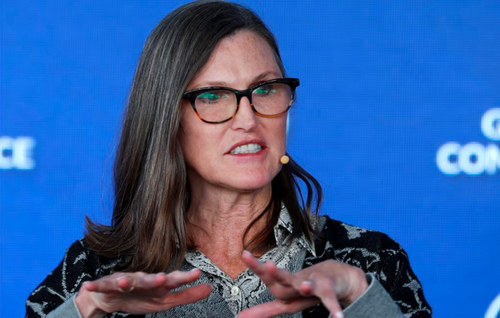In season 9 episode 23 of The Office, Andy Bernard graced us with one of television’s most memorable quotes:
“I wish there was a way to know you’re in the good old days before you’ve actually left them.”
Isn’t that the truth?
We experienced a decade of quantitative easing and declining interest rates that culminated with an unprecedented multi-trillion-dollar infusion of capital in 2020. But three years later, the party had to end.
The Fed is raising rates, money isn’t free anymore, and companies have to once again rediscover the lost art of “turning a profit.” Outrageous stuff, isn’t it?
However, we shouldn’t cry because quantitative easing is over, we should smile because it happened 🙂 In remembrance of the last decade, I would like to highlight 11 things that were only possible thanks to 0% interest rates.
Enjoy!
1) Day Trading as a Career
“Oh bro, I think $TSLA is consolidating in a bull flag, it’s about to break out!”
“Dude, I made so much money on GameStop, maybe I should just quit my job and trade my portfolio full-time.”
“Yeah man, the stock market really isn’t that hard. Just buy calls on the stocks that are going to go up.”
If you are a dude who was even somewhat interested in the stock market between January 2020 and January 2022, there is a greater than 75% chance you were in a group chat that looked something like this. Believe it or not, it was actually pretty easy to make money buying call options on tech stocks when every single tech stock only went up for like 15 months.
What many failed to realize was that their alpha was really just levered beta, and levered beta works both ways.
If you thought you were getting rich because of your exceptional research, but you were actually getting rich because you bought call options on high-beta stocks during a period of QE-induced irrational exuberance, you will end up quite poor, ironically, due to this same “exceptional research.”
Which is exactly what happened, as these infallible trading strategies proved to be quite fallible.
But don’t worry, former day trading extraordinaires, because I have some good news: while the whole stock market thing didn’t work out, McDonald’s is hiring.
2) Chamath’s SPACs
Let me tell you a bit about how SPACs work:
A SPAC is a Special Purpose Acquisition Company. These bad boys raise hundreds of millions of dollars before listing on the stock market as publicly traded bank accounts trading around $10 per share.
SPACs look for private companies to take public, they offer these private companies all of the capital in their treasuries for an X% stake in the company, and they price these deals at $10 per share. For example, your $100M SPAC could take a 10% stake in a private company, and the newly formed, publicly traded company would be worth ~$1B at $10 per share. If the SPAC climbs to $20 per share pre-merger because investors like the deal, the pro-forma valuation is now $2B.
Understand? Good.
Now to Chamath. The self-proclaimed next Warren Buffett had a good pandemic run, one of the best. While he couldn’t have predicted the upcoming SPAC bubble when he closed a deal to take Virgin Galactic public in November 2019, he was well-positioned to ride the wave from 2020 through early 2022.
As SPACs grew more and more popular, the Social Capital CEO leveraged his Twitter presence to juice his investments.
After closing a deal for one of his many SPACs, Chamath Palihapitiya would type up a 25 bullet-point “one-pager” explaining why he liked the stock, share this memo with his millions of followers, and watch as they bid the stock price from $10 to $15, $20, and even $30.
With a few keystrokes and the click of a button, Chamath increased the net present value of future cash flows of his investments by billions of dollars.
Incredible stuff. Unfortunately, a crisp one-pager can’t save a mid-tier car insurance company trading at 40x sales.
Fortunately, Chamath likely sold well before the stock crashed. It is important to manage one’s liquidity, after all. God bless Mr. Palihapitiya, the grifter that we needed but didn’t deserve. Someone put this man in the Hall of Fame 🙏🏼
3) ESG Investing
Environmental, Social, and Governance. No one actually knows what any of that means, but you can throw that label on your fund, change your website’s color to a shade of light green, and instantly charge 5x higher expense ratios. Don’t believe me? Let me show you two ETFs: the first is BlackRock’s iShares ESG Aware MSCI USA ETF, while the second is BlackRock’s S&P 500 portfolio. Notice any major differences?
No?
Well, there is one big one: the first ETF charges 400% more in its expense ratios. ESG became this funny thing where everyone knew it wasn’t really a thing, but everyone was trying to pretend like it was a thing because everyone needed everyone to think that they thought that it was a real thing. Perception was infinitely more important than reality.
The truth is that ESG was really just a side quest designed to make capitalism harder.
The economy was running so smoothly for the last 13 years that one day we got bored and said, “Oh your company is profitable? Cool. Now you have to hire a Chief Sustainability Officer, purchase carbon credits from companies that are actually environmentally friendly, and convince the general public that despite having sweatshops in China, your company is still one of the good guys.”
And you know what? Tim Cook managed the impossible.
I personally think ESG was yet another low-interest rate phenomenon, and it’s about to take a backseat to other, more pressing matters. Like making money.
4) Venture capital-subsidized lifestyles
Let’s turn back the clock to May 2020. You, me, and everyone else are stuck working from our apartments all day every day. Your pantry is running low, but instead of rewearing that disgusting cloth mask for the 27th time as you browse the aisles of your local Kroger, you decide to use one of 27,234 different grocery delivery apps that gives you 50% off all purchases made that month.
Next month, you repeat the process with a different app or different email, and the cycle continues. Venture capitalists poured billions into finding the “Uber of groceries,” (and there were a lot of Ubers of groceries) and we consumers benefited by literally getting free food hand-delivered to our apartments.
And this VC-subsidized service wasn’t limited to grocery delivery services either! Ubers and Airbnbs used to be half the price of taxis and hotels, and you could whip a Bird scooter around Washington D.C. for $1.50. At some point, however, all of these companies either began charging more money (profitability does matter!) or they went bust.
5) Miami
RIP Miami, 2021-2022.
“Miami is the FUTURE!” yelled an army of tech-bros who ditched California and New York in 2020 for warm weather and zero Covid-restrictions. “This city is full of BUILDERS!”
Well, it just so happens that 1) people have now returned to both New York and Silicon Valley, and 2) most of the “builders” on South Beach were just crypto bros stimulating the bottle service economy every weekend. Miami is a great city, it has great weather, and the beach is fantastic. But the idea that South Beach was going to usurp New York and/or San Francisco as the center of everything was really just a poor extrapolation of Keith Rabois’s Covid vacation.
6) NFTs
Folks were really out here paying $500,000+ for pictures of rocks and monkeys instead of, like, I don’t know, buying a house? “Oh but bro we get exclusive membership to in-person events.” Sick, there really isn’t anything better than spending your weekend at a conference full of folks whose only commonality is that they all spent six figures on pictures that looked something like this:
Out of everything that stemmed from zero percent interest rates, NFT culture was the most insufferable. I welcome the second coming of the Great Depression if it means the JPEGs end up worthless.
7) Adjusted EBITDA
As someone who has now taken four accounting classes across my undergraduate and MBA coursework, I still haven’t read any chapters on this metric known as “adjusted EBITDA.”
I found this to be quite strange, because every earnings report presented by companies that didn’t actually have real EBITDA over the last few years included an extra line called “Adjusted EBITDA.” And this adjusted EBITDA was always a positive number. Pretty cool, right?
On my accounting midterm in October, I couldn’t get my income and cashflow statements to balance correctly. Fortunately, I tapped into my street smarts and added a row for “adjusted EBITDA” where I deducted a few million dollars of expenses and BOOM! everything worked out. I did not make an A on this midterm.
Adjusted EBITDA is a fascinating tool that more companies should have utilized. You literally just take your negative EBITDA and subtract expenses until it’s positive, then call it adjusted EBITDA.
For those curious, the adjusted EBITDA of this blog is approximately $1,000,000. For taxation purposes, however, my net income is -$100,000.
8) Work-Life Balance
We had two years of the good life, working 10 hours a week and moving our mice to look like we were “active.” With companies desperate for workers and everyone receiving stimmy checks from Donny T and Joey B, the employees had all the leverage.
Work overtime? No sir, my life is about ✨balance✨ now. Bringing one’s laptop to Tulum, Cartagena, and Lisbon instead of making the dreaded commute to the office. White-collar America spent 18 months in a labor market facade, the industrial devolution of remote workers refusing to actually remotely work.
It was beautiful, and we called it work-life balance.
And now, with companies cutting jobs and demanding that their employees return to the office, that beautiful, wonderful dream is dead.
9) The Metaverse
Has there ever been more money incinerated on a project that literally no one asked for? After a year of pandemic lockdowns, everyone just wanted to go outside and see their friends again. Meanwhile, Zuckerberg and company thought, “You know what? What if we rebuilt the Sims video game franchise, except we blow $30B along the way?”
Horizon Worlds was such a dud that Meta had to force its employees to use the platform, you couldn’t write a comedy script better:
In a follow-up memo dated September 30th, Shah said that employees still weren’t using Horizon enough, writing that a plan was being made to “hold managers accountable” for having their teams use Horizon at least once a week. “Everyone in this organization should make it their mission to fall in love with Horizon Worlds. You can’t do that without using it. Get in there. Organize times to do it with your colleagues or friends, in both internal builds but also the public build so you can interact with our community.”
10) Dudes Working Seven Different Remote Jobs
When you are working in an office, you can’t really do any other jobs that require you to be in an office, because you can’t be in two places at once. And you can’t really do a separate remote job from an office either, because it would look pretty weird to your supervisor if you were working for another company from your cubicle.
However, when you’re working from home, you can work from home for, hypothetically, as many companies as you want. You can have an Amazon laptop and an Apple laptop and a Google laptop and a Microsoft laptop and a bunch of other laptops, and you can earn like $100k+ from all of these jobs at the same time.
So of course, some people did that.
The thing is, if it’s possible to “work” at 10 different jobs at once, it’s probably possible for all 10 companies to lay you off without having much of a drop in productivity. Which is, of course, what began to happen.
Over the last six months, every big tech company not named “Apple” has laid off thousands of workers, putting pressure on the remaining workers to up their game. RIP to the 4 job, 14 hour work week. It was fun while it lasted.
11) Cathie Wood
Has anybody directly benefited more from quantitative easing more than Cathie Wood and Ark Invest? Nope.
Four years ago, no one had heard of Ark Invest or its founder. However, Cathie’s firm was betting big on disruptive companies across the electric vehicle, genomics, and fintech industries. When the market began recovering from its March 2020 Covid crash, Ark’s holdings exploded, and her ETF’s price climbed from $35 to $155.
Suddenly, Cathie was on CNBC and Bloomberg discussing advancements in Tesla’s self-driving technology and innovations in the blockchain space. Ark gave ambitious (to say the least) price targets, claiming Tesla would hit a split-adjusted $1500 per share (a $5T market cap) by 2026, and bitcoin would one day hit $1,000,000 per coin.
By January 2021, she was averaging $3B in net flows (inflows – outflows) per month, but then the tide began to turn. In 2022, the former high-flyer generated -67% returns, one of the worst performances in the market. To quote myself from earlier in this article:
“If you think you were getting rich thanks to your exceptional research, but you were actually getting rich because you bought call options on high-beta stocks during a period of QE-induced irrational exuberance, you will end up quite poor, ironically, due to this same “exceptional research.”
But don’t worry, Cathie will be alright. Despite a terrible performance, her fund brought in $1.6B in new capital in 2022, and she’s still raking in those sweet, sweet management fees. Shout out to the queen 👑
So yeah, the easy money is gone, your NFTs are worthless, and the metaverse is all-but-dead, but at least we helped Chamath and Cathie make some money along the way.
– Jack
If you liked this piece, make sure to subscribe!



